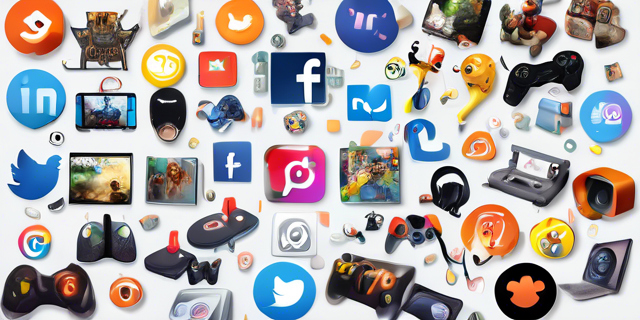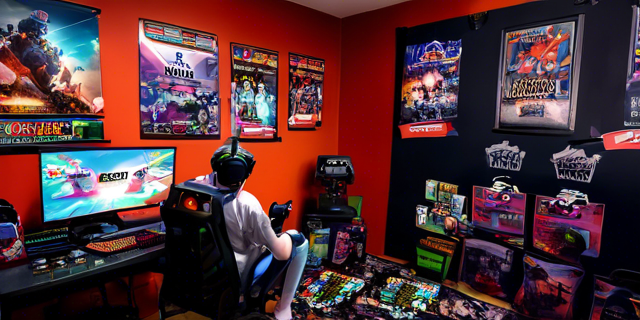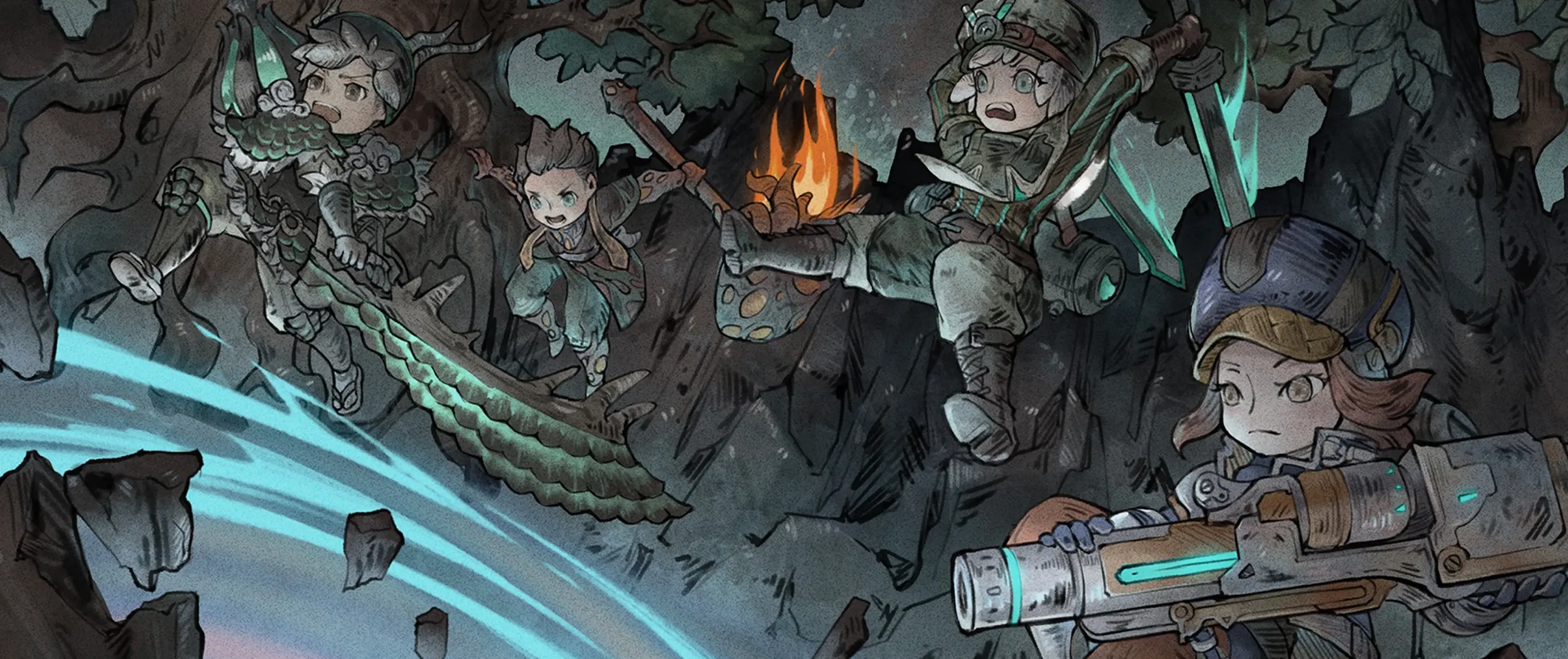In the competitive world of gaming, where new titles hit the market daily, a robust social media strategy can set your game apart. Creating an exceptional game is only part of the equation; effective game marketing strategies are crucial for success. Social media has become an indispensable tool for gaming brands, offering a direct connection to millions of potential players.
This blog will explore key social media strategies for gaming brands, focusing on promotion strategies for games and ways to grow your gaming community.
The Importance of Social Media Strategies for Gaming Brands
Social media strategies are essential for gaming brands due to their extensive reach and engagement opportunities. Here’s why integrating social media strategies into your game marketing is vital:
- Global Reach: Social media platforms allow you to connect with a global audience, giving your game international visibility.
- Community Engagement: Building and nurturing a gaming community can drive organic promotion and foster player loyalty.
- Immediate Feedback: Social media provides instant feedback from players, helping you quickly address issues and adapt your game.
- Cost-Effective Promotion: Compared to traditional marketing, social media offers a more affordable and impactful way to promote your game.

Developing Effective Social Media Strategies
To create a successful social media strategy, follow these steps tailored to game marketing:
1. Define Your Goals
Start by outlining clear objectives. Common goals for gaming brands include:
- Increasing brand awareness
- Driving game downloads or purchases
- Building and engaging a dedicated player community
- Generating excitement around new releases or updates
Setting specific goals helps focus your efforts and measure the success of your promotion strategies for games.
2. Understand Your Audience
Know your target demographics, interests, and even their online behaviors. Use analytics tools like Facebook Insights and Twitter Analytics to gather valuable data. Understanding your audience is crucial for tailoring content that will resonate with their own habits and preferences.
3. Choose the Right Platforms
Not all social media platforms suit every game. Select platforms that align with your audience and content style:
- Facebook: Ideal for detailed updates and building communities.
- Twitter: Great for real-time engagement and news.
- Instagram: Perfect for visual content and reaching younger audiences.
- TikTok: Excellent for viral trends and short, engaging videos.
- YouTube: Best for in-depth content like trailers, gameplay videos, and developer updates.
Choosing the right platforms ensures that your content aligns with your audience's preferences.
4. Create Engaging Content
Content is central to your social media strategy. Here are some content ideas for gaming brands:
- Game Trailers and Teasers: Highlight your game’s features that ignite excitement and interest.
- Behind-the-Scenes Content: Share insights into the development process and team, making your brand more relatable and genuine.
- User-Generated Content: Encourage players to share their experiences and creations, enhancing community involvement.
- Live Streams: Host live gameplay sessions and Q&As to interact directly with your audience.
- Contests and Giveaways: Run engaging contests and giveaways to boost interaction and expand your reach.
Creating varied and engaging content helps maintain interest and promotes your game effectively.
5. Collaborate with Influencers
Influencer partnerships can significantly enhance your game’s visibility. Collaborate with gaming influencers who align with your brand and target audience. Influencers can create content, review your game, and share it with their followers, amplifying your promotion strategies for games. Ensure the influencers you choose have a genuine connection with their audience to maximise impact.
6. Engage Actively with Your Audience
Social media is a two-way street, it's not only you walking down it.
Actively engage with your followers by responding to comments, messages, and mentions. Acknowledge their support and address concerns promptly. Building strong relationships with your community fosters trust and loyalty, essential components of effective social media strategies.
7. Use Paid Advertising
While organic reach is valuable, paid advertising can enhance your efforts. Platforms like Facebook, Instagram, and Twitter offer various advertising options:
- Sponsored Posts: Expand your reach with promoted content.
- Video Ads: Showcase your game with compelling video ads.
- Influencer Promotions: Leverage paid influencer partnerships to boost visibility.
- Retargeting Ads: Target users who have shown interest but haven’t converted yet.
Paid advertising helps you reach a broader audience and achieve your marketing goals more efficiently.
8. Monitor and Analyse Performance
Track your social media performance using analytics tools. Key metrics to monitor include engagement rates, click-through rates, and conversion rates. Analysing this data allows you to refine your strategies and improve future campaigns. Regular performance reviews help you understand what works and adjust your tactics accordingly.

Innovative Social Media Strategies for Gaming Brands
To stand out, consider these innovative social media strategies:
1. Interactive Storytelling
Develop a narrative around your game that unfolds on social media. Use platforms like Instagram Stories, TikTok, and Twitter threads to share episodic content that captivates your audience and builds anticipation.
2. Augmented Reality (AR) Filters
Utilise modern AR technology to create interactive filters related to your game. Platforms like Snapchat, Instagram, and TikTok offer AR capabilities that let players engage with game characters and elements. Ultimately promoting your game through user-generated content.
3. Gamified Social Media Campaigns
Integrate gameplay elements into your social media campaigns. Create challenges, scavenger hunts, or puzzles that players can participate in. For example, hiding clues in your posts to unlock in-game rewards can drive engagement and excitement. Plus it keeps their attention and on their toes.
4. Cross-Promotion with Other Games
Collaborate with other game developers for cross-promotion. Share content, host joint events, or create crossover promotions to reach new audiences and build community connections.
5. Personalised Content and Communication
Use data to personalise your social media interactions. Tailor content to your audience’s preferences and address them by their usernames in replies. Personalised communication enhances the player experience and builds stronger connections.

Best Practices for Social Media Marketing
To maximise the impact of your social media marketing, follow these best practices:
1. Consistency is the secret ingredient
Maintain a regular posting schedule to keep your audience engaged and informed. Utilise social media management tools like Hootsuite or Buffer to plan and schedule posts.
2. Prioritise Quality
Focus on creating high-quality content that provides value to your audience. Avoid overwhelming your followers with too many posts.
3. Be Authentic
Authenticity builds trust. Be transparent and genuine in your interactions with followers.
4. Stay Trendy
Keep up with the latest trends in gaming and social media. Adapt your content to current trends and popular topics.
5. Nurture a Community
Foster interaction among your audience. Create spaces for discussion, like Facebook Groups or Discord servers, to strengthen your community.
Conclusion
Implementing effective social media strategies is essential for gaming brands aiming to engage their audience and drive success. By understanding your audience, creating compelling content, collaborating with influencers, and utilising paid advertising, you can enhance your game's visibility and impact. Regularly analyse your performance and adapt your strategies to ensure continuous growth. With these strategies, you'll successfully build and maintain a thriving gaming community.
For more insights and tips on game marketing, visit us at The Game Marketer. If you need expert help in marketing your game, check out our comprehensive marketing services designed to make your game a hit!



